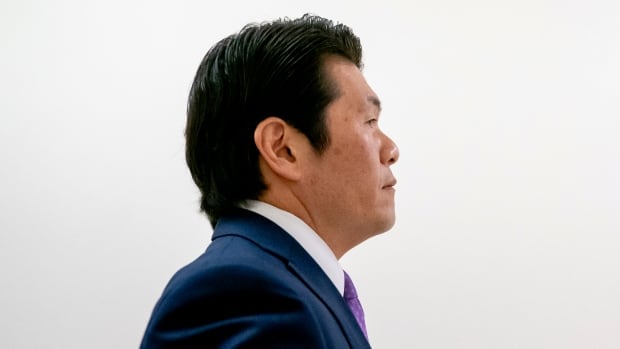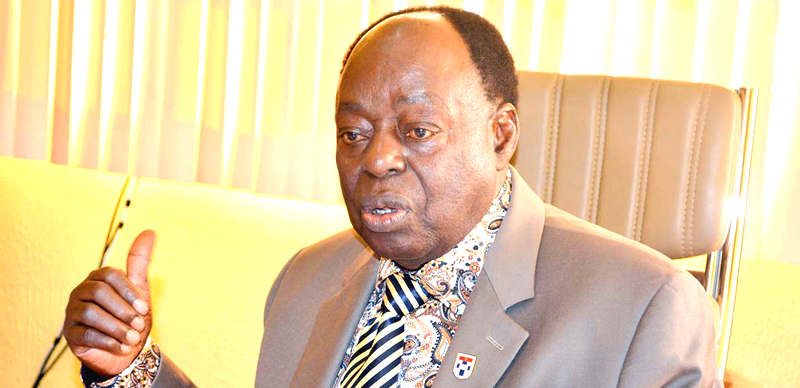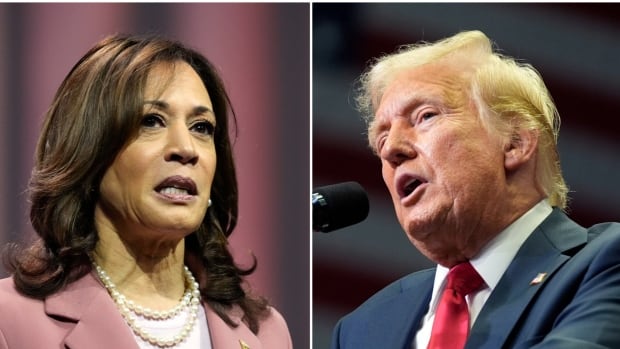Over five hours of interviews, U.S. President Joe Biden repeatedly told a special counsel he never meant to retain classified information after he left the vice-presidency, but he was at times fuzzy about dates and said he was unfamiliar with the paper trail for some of the sensitive documents he handled.
A transcript of those interviews was made public Tuesday, as the special counsel, Robert Hur, went before the U.S. House judiciary committee to face questions about his investigation of the Democratic president.
In his report, Hur concluded Biden should not face criminal charges over his mishandling of documents, but also impugned the president’s age and competence.
The special counsel, for his part, stood by his assessment of the president’s memory as “accurate and fair,” in prepared testimony to be delivered to Congress.
“What I wrote is what I believe the evidence shows, and what I expect jurors would perceive and believe. I did not sanitize my explanation. Nor did I disparage the president unfairly,” Hur said Tuesday in his prepared remarks.
While Biden fumbled some details in his interview, the full transcript could raise questions about Hur’s depiction of the 81-year-old president as having “significant limitations” on his memory. The transcript paints a more textured picture of his discussions with prosecutors, filling out some of the gaps left by Hur’s accounting of the exchanges.
At the same time, it makes plain the Republican lawyer never asked Biden about the timing of his son Beau’s death, contradicting the president’s indignant public objections to that supposed line of questioning.
Transcript raises questions about Hur, Biden depictions
Both the hearing and the transcript were meant to clear up lingering questions about Hur’s report on the discovery of some classified records at Biden’s home and former Washington private office.

On Capitol Hill, Hur appeared set to be the rare witness likely to be vilified all around — by Republicans angry over his decision not to charge the president and by Democrats for his unflattering commentary about Biden.
Democrats will try to paint Hur as a political partisan out to help his party win a presidential election. Republicans immediately began digging further into Hur’s assessment of the president’s age and memory — a major attack line as they seek to unseat Biden come November.
Chair Jim Jordan said at the start of the hearing that “it boils down to a few key facts: Joe Biden kept classified information. Joe Biden failed to properly secure classified information and Joe Biden shared classified information with people he wasn’t supposed to. Joe Biden broke the law because he’s a forgetful old man who would appear sympathetic to a jury. Mr. Hur chose not to bring charges.”
Hur’s report cited evidence that Biden willfully held on to highly classified information and shared it with a ghostwriter, based on audio of the conversations between the two men, in which Biden said he had just come across some classified documents at his home.
Hur needed ‘to show my work’
In the interviews, Biden said he did not recall the exchange, or that he had actually discovered any documents. He said if he had discussed anything questionable with the ghostwriter, it was in referring to a 20-page sensitive memo he had written to then-president Barack Obama in 2009 arguing against surging troops in Afghanistan that he wanted to ensure didn’t make it into publication.
Hur devoted much of his report to explaining why he did not believe the evidence against Biden met the standard for criminal charges, partly based on the hours of interviews with the president.
In his prepared remarks, Hur said he was aware of the need to explain in great detail why he’d decided not to charge the president. Such explanations are common but usually kept confidential. Hur didn’t hold back.
“The need to show my work was especially strong here,” he said. “The attorney general had appointed me to investigate the actions of the attorney general’s boss, the sitting president of the United States. I knew that for my decision to be credible, I could not simply announce that I recommended no criminal charges and leave it at that. I needed to explain why.”
Biden first sat down with Hur during a time of crisis — one day after the devastating Hamas attack on Israel on Oct. 7.
Hur never asked Biden about timing of son’s death
Confusion over the timing of the death of Biden’s son Beau — who died May 30, 2015 — was highlighted by Hur in his report as an example of the president’s memory lapses. But the transcript shows Hur never asked Biden about his son specifically, as a visibly angry Biden had suggested in comments to reporters the day the report was released.
“How in the hell dare he raise that,” Biden said of Hur. “Frankly, when I was asked the question, I thought to myself it wasn’t any of their damn business.”
But the transcript suggests the exchange was less revealing about Biden’s memory than Hur let on, and that Biden’s recollection of it during his emotional White House remarks was incorrect.

Hur asked Biden about where he kept the things that he was “actively working on” while he was living in a rental home in Virginia immediately after leaving the vice presidency in January 2017. And in that context, it was Biden himself who brought up Beau’s illness and death as he talked about a book he’d published later in 2017 about that painful time.
“What month did Beau die?” Biden mused, adding, “Oh God, May 30th.”
A White House lawyer then chimed in with the year, 2015.
“Was it 2015 he died?” Biden asked again.
Biden went on to recount in detail the story contained in his book, Promise Me, Dad, of how his late son had encouraged him to remain engaged in public life after the Obama administration ended.
The Department of Justice redacted information about other people involved in the case, and the National Security Council and the State Department blacked out some details relating to sensitive intelligence and foreign affairs matters.






